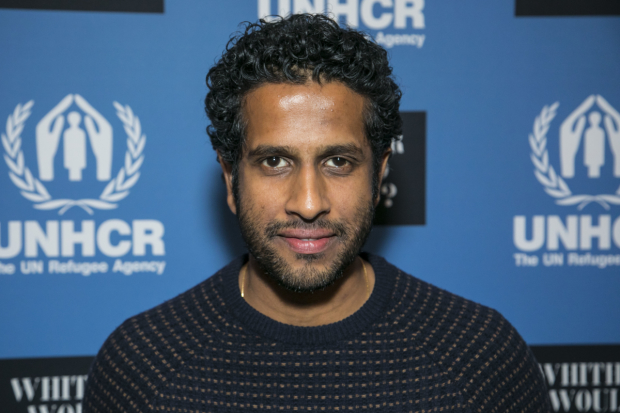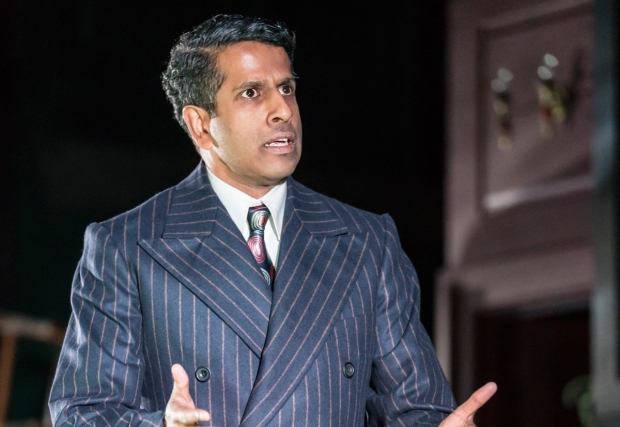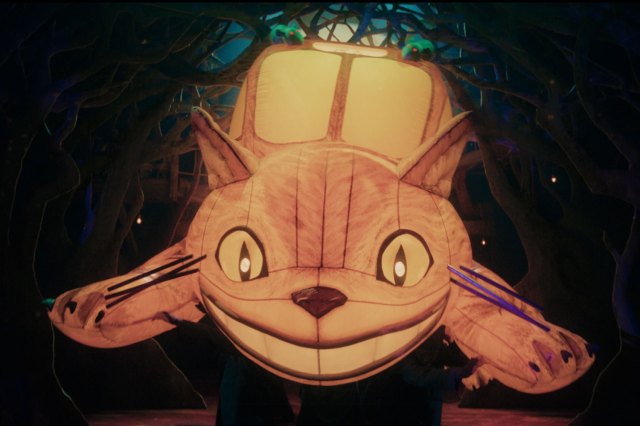Prasanna Puwanarajah: 'Britain wasn't ready for Absolute Hell when it first came out'
As he prepares to open in the National Theatre’s revival of Rodney Ackland’s classic play, the Doctor Foster star explains why he moved from medicine to acting

© Dan Wooller for WhatsOnStage
Actor, director, writer and trained doctor Prasanna Puwanarajah came later than most to the profession of acting. After training as a medic at Oxford, and getting a job in reconstructive surgery, he took a year out to explore his hobby of acting. It was at that point where the jobs started rolling in, and since then he has starred in many productions at the National Theatre, written a short film, directed a TV series for Channel 4, and recently starred in Mike Bartlett's Doctor Foster on BBC One opposite Suranne Jones. Now he's about to open in the National Theatre's revival of Rodney Ackland's legendary Absolute Hell, set in a Soho club as World War Two comes to an end.
Absolute Hell has an enormous cast. There are 28 of us, and although the rehearsal rooms at the National are like huge sports halls, they feel really small when we're all in there. It's not the biggest cast I've ever been in though. Emperor and Galilean [also at the National] had around 50 people in it. It's really fun when you have that number of people. There's a lot of support and it feels like a collective.
Britain wasn't ready for a warts-and-all look at social behaviour in the early '50s when the play came out. There was a much more straightforward propaganda social mission to try to climb out of the war. So this play felt very subversive. It's set in Soho in a private members drinking club in 1945 and there's a ripple going on in the world about what's happening next. The club has been a sanctuary to people who would describe themselves as ‘other' and it's about what they are going to do with their lives.
Absolute Hell was originally called The Pink Room. All the relationships that weren't heteronormative were written as heteronormative, because of the censorship at the time. It shocked nonetheless when it first came out, and I think it is still, because it's about people who are judged by society. When the play was rediscovered by the Orange Tree in the '80s Rodney Ackland rewrote it to contain the relationships he wanted to portray.

© Johan Persson
In my career I am, largely speaking, unemployed, which is interspersed with periods of tessellating busyness. I write, direct and act, but I am not necessarily busy enough with any of the different sorts of things I do for any one of them to take precedent. It's always about the story that's the most important thing, as opposed to the medium.
I was offered an eight year post in reconstructive surgery, but circumstances meant I was able to have a year out before I started. I wanted to decompress a little bit, so I made a few short films and went to auditions. Then projects started happening and I just began to prefer who I was as a person when I wasn't in the NHS. I think it's a great profession and I have so much respect for my colleagues and friends who still do it. I'm not the only doctor in the company of Absolute Hell either! Esh Alladi is a practising doctor who works on the A&E ward at the Royal Free.
It's the unpredictability of acting and writing that I love. It's something to do with the fact that a creative project has an end, which sometimes those dark nights on call feel like they don't. And then there's always another one just round the corner.


















